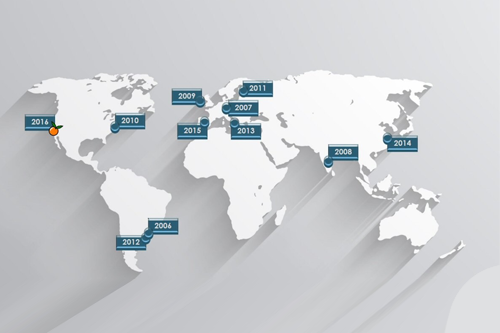Article: International Conference on Global Software Engineering

A conference on Global Software Engineering: University researchers and Industry experts get together to compare findings and work toward solutions.
The 6th IEEE International Conference on Global Software Engineering 2011 (http://icgse.org/) is organized by the world’s largest association for the advancement of technology. The conference brought together researchers and practitioners interested in exploring how globally distributed teams work and how the challenges can be met.
It also provides opportunities for researchers from across the globe to exchange and discuss scientific and engineering ideas at various stages of development. Conference attendees got an opportunity to explore current best practices as well as industry trends that will shape the future.
ICGSE 2011 took place August 15- 18, 2011 in Helsinki, Finland. The theme this year was Global Software Engineering Challenges for the Next Decade. There were approximately 100 attendees from 24 countries. The topics this year were: GSE Governance, Global Agile and Lean, Knowledge and People Management, Testing and Quality, and Communication and Education.
There were three keynote addresses, including Walt Scacchi from the Institute for Software Research at University of California Irvine, speaking on Free/Open Source Software Development as an Approach to Global Software Engineering; Christian Engblom from Ericsson Finland R & D, speaking on Waterfall to Agile in Global Software Development at Ericsson;and Kaj Arnö from SkySQL Ab presenting a case study: MySQL AB: Doing Open Source Business with a Global Community of Developers.
I gave an industry-based technical session called “An Industry-based Examination of Distributing and Outsourcing Testing in Agile Projects” this research paper examined the realities of implementing Agile practices combined with offshore outsourcing.
Most of the participants were from Europe. They have very different flavors of offshoring and outsourcing than typical North and South Americans and Asians are used to. In Europe, you have high cost and low cost labor markets and availability of well trained staff on the same continent. It is most common for partnerships between, for example, Sweden and Hungary or Germany and Romania. There are sometimes similar situation is Asia, for example, between Japan and Viet Nam or the US and Brazil but not nearly as common as in Europe.
The overlapping work time has a great impact on teamwork and available varieties of work time communication leading to few late-night phone calls so common to North American to Asian partnerships. Yet it is still common to have language, visibility and culture issues. Time difference (propinquity), culture, language, visibility and support tools were often referenced in the research presented.
The next ICGSE conference, August 27 – 30th 2012, will be held in Porto Alegre Brazil.



.svg)

